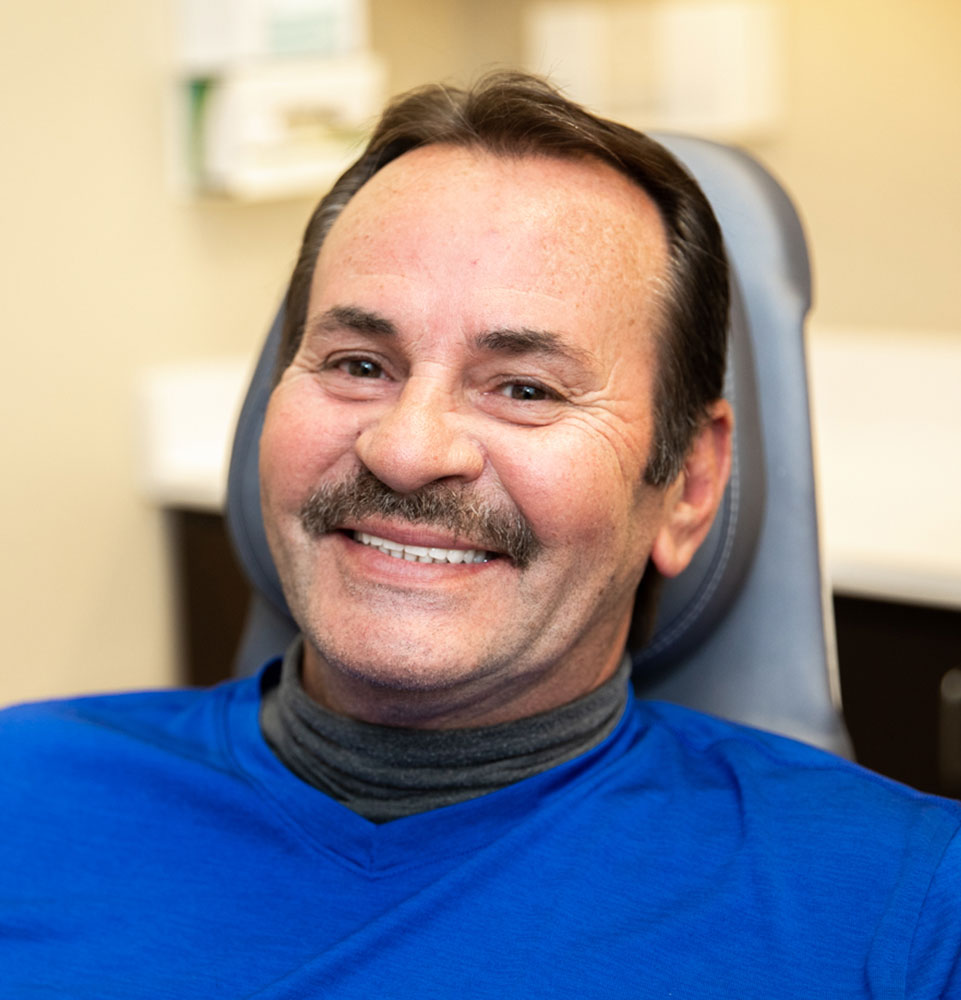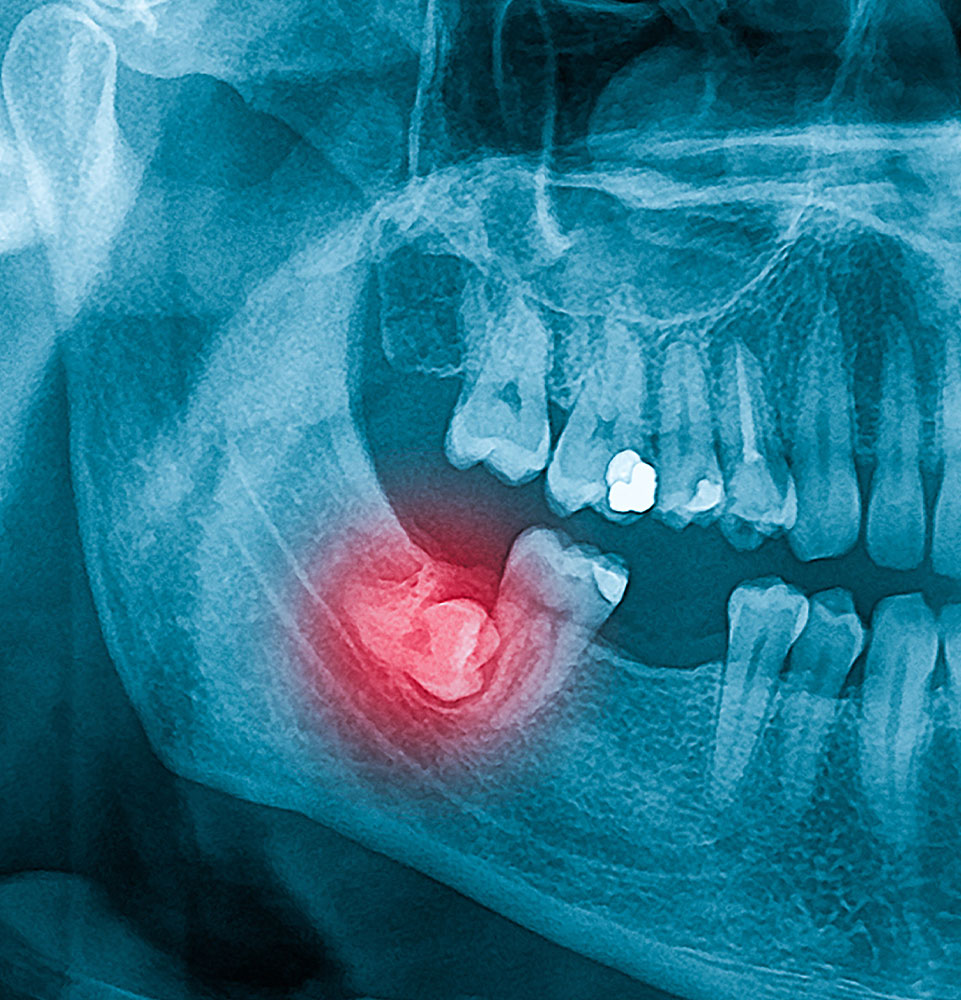
Most adults typically have two complete sets of molars in place by the age of 12, but between 16-20 years old, a third set, known as wisdom teeth, emerges. While ideally, these teeth would integrate smoothly into the dental arch, they often cause problems due to insufficient space. Wisdom teeth commonly become impacted, leading to issues like crowding, shifting, and potential damage to adjacent teeth, nerves, or roots.
These molars can also pose risks of cysts or infections, jeopardizing overall oral health. Even without immediate issues, early detection during their development allows for proactive removal, preventing potential complications. By addressing wisdom teeth early, we can safeguard your oral health and prevent future dental problems.

We understand that wisdom tooth removal often involves the removal of third molars, which may be the first experience with oral surgery for many of our patients. This routine oral surgery is focused on extracting wisdom teeth at the mouth’s back. Here’s a general overview of what you can anticipate from our process:
In your consultation with our board-certified oral surgeons, we will conduct a thorough examination of your mouth, complemented by digital X-rays. This assessment will help us determine the position and complexity of your wisdom tooth extraction.


To access the tooth, we’ll create an incision in the gum tissue, and if necessary, we may need to eliminate some surrounding bone or divide the tooth into smaller pieces for a smoother extraction process. The extraction of your wisdom teeth will be conducted with precision and care. We often remove all four wisdom teeth in a single session to streamline the healing process. In cases where not all four need extraction, we still remove the ones that need extraction on the same day for efficient care, and in some instances, we may employ a sectioning technique for better control during the procedure.
Following the extraction, you will be given time to recuperate in a dedicated recovery area. Since there will be swelling, we will provide you with an ice pack to help. Our Advanced Dental Implant Center team will thoroughly discuss post-operative instructions, guiding you to tend to the extraction site and promote healing. We will also prescribe pain medication and an antibiotic if needed. The full amount must be taken if medication is prescribed, even if you feel better.

Round Rock is owned by Tom Kennedy, DDS under Affordable Dentures & Implants – Texas, PLLC
Denver is owned by Anthony Narajna, DDS under Affordable Dentures & Implants – Denver, PLLC
Advanced Dental Implant Center are part of a professional affiliation of dental implant practices operated by oral surgeons, periodontists, prosthodontists, and restorative dentists. With the specialized techniques used by Advanced Dental Implant Center, such as zygomatic and pterygoid implants, nearly all patients qualify for same day dental implants from a dental perspective. Prospective patients require an initial workup that includes an oral examination, 3D radiographic evaluation, and medical history consultation. Some patients with certain medical histories may not qualify for surgical treatment. “Teeth-in-a-day”, “one day implant teeth”, “same day implant teeth”, etc. refers to the fact that on the day of surgery, patients will have teeth removed (unless all teeth are already missing, dental implants placed, and a screw retained prosthesis secured to these implants on the same day as the surgery. While this first set of teeth are permanent in the fact that they are secured to the dental implants by screws, these teeth are typically not the final set of teeth as the patient will be allowed to heal prior to the delivery of the final set of teeth. Furthermore, the patient will be allowed to suggest desired changes to the initial set of teeth prior to the fabrication of the final set of teeth. The initial set of screw retained implant teeth are permanent in the fact that they are not removable by the patient and can only be removed by personnel in a dental office. With proper care and maintenance, dental implants can last a lifetime depending on the age of the patient when the implants were originally placed. Studies show that dental implants can last over 25 years with proper home care and regular professional maintenance.
© All rights reserved